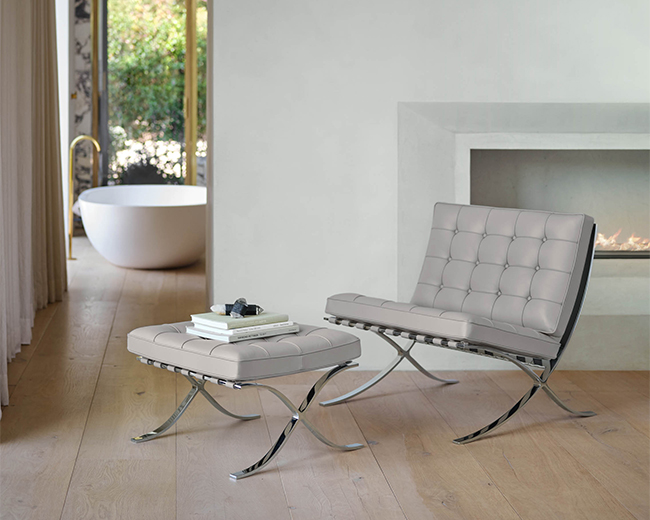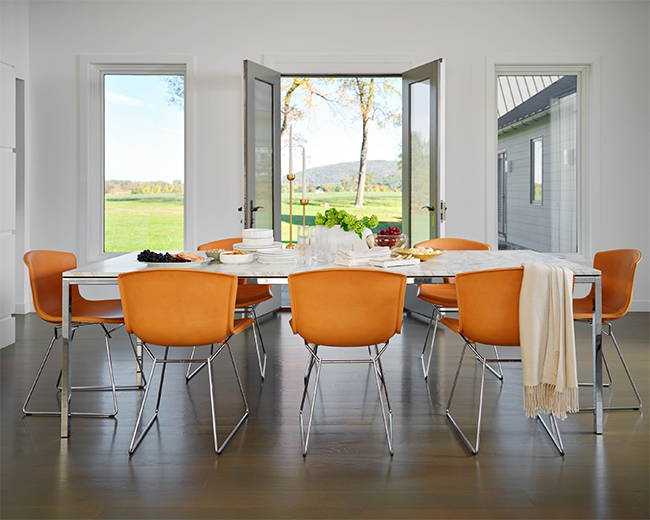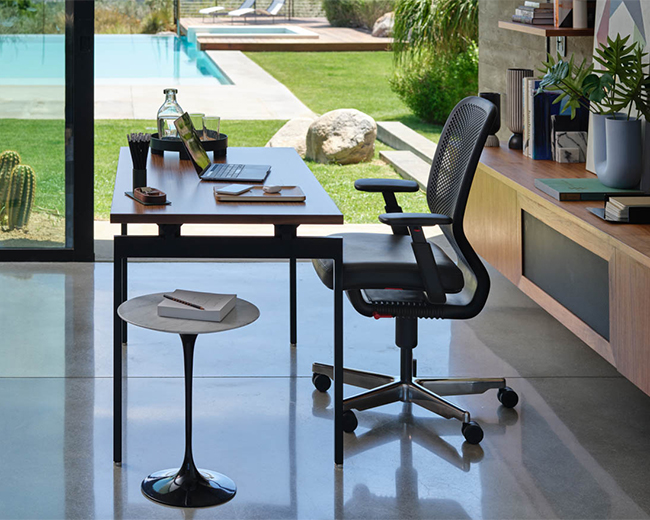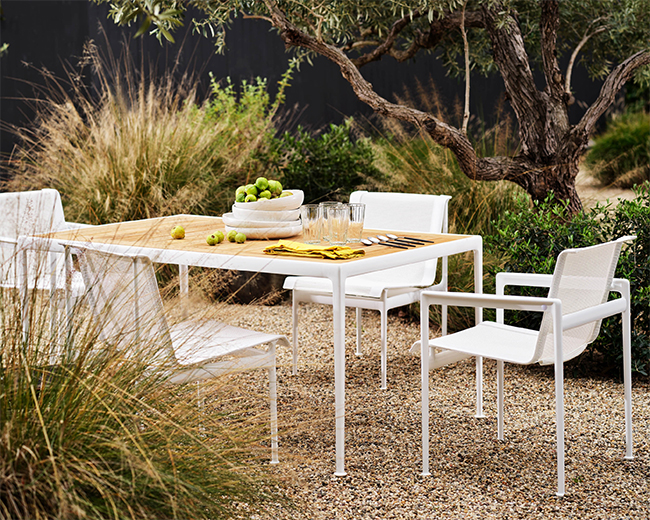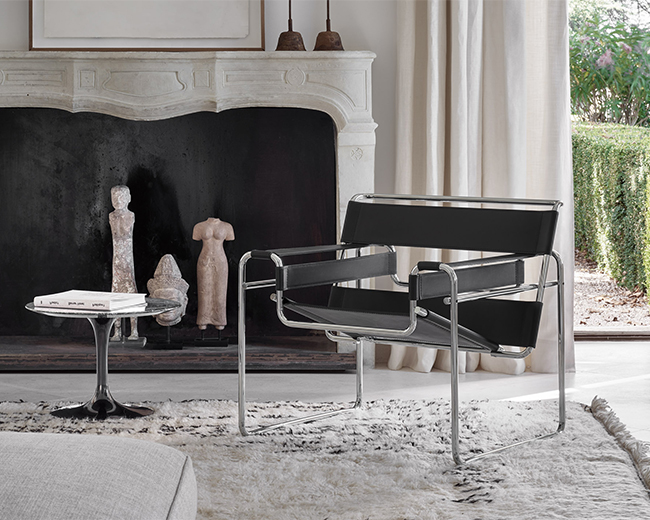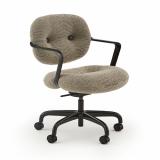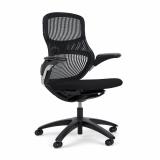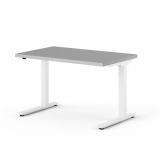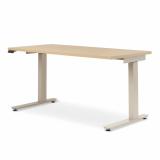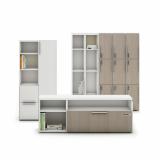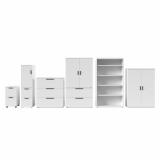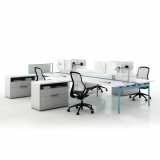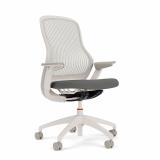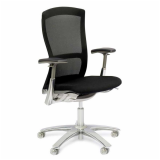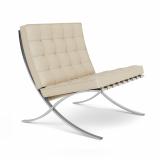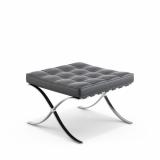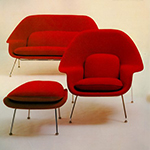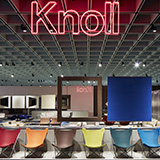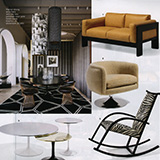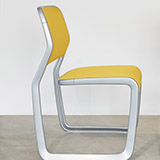In celebration of Knoll’s 80th anniversary, Italian publication Interni celebrates the company’s “brilliant intuitions,” from its early years. The piece highlights the company’s preemptive adoption of being a truly international brand. Under the leadership of Hans and Florence, Knoll was able to prolifically unify American and European tastes in a postwar society on the brink of globalization. In addition to an early adoption of internationalism, Interni also highlights the company’s mission to think about the “dialogue between furniture and space” from a viewpoint that was both conceptually holistic and fundamentally modern.
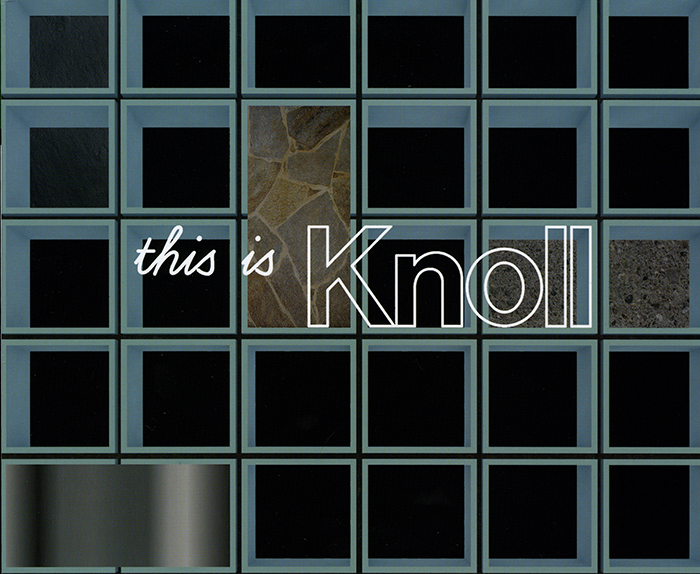
Domitilla Dardi of Interni sat down with Andrew Cogan, Knoll CEO; Benjamin Pardo, Knoll Design Director; and Demetrio Apolloni, President of Knoll Europe to discuss the brand’s heritage, the workplace and what it means to be modern today in the following excerpt:
Hans and Florence Knoll put together an incredible team, a remarkable mixture of great masters and young talent, creating a catalogue in which the “sculptural” pieces were inserted in a harmonious framework of “architectural” pieces (as Florence herself called them, though she also used the expression “meat and potatoes”). Has this direction of choices served as a guide for you as well? How did you decide in recent years on names like Frank Gehry, David Adjaye, Piero Lissoni, Rem Koolhas, Barber and Osgerby, and Marc Newson?
Andrew Cogan: We are always looking for those established and emerging architects doing interesting work on an architectural scale who are truly committed to the design and development of a furniture collection as an important engagement on its own, as opposed to a “shrinking” of their architectural work. Those who approach it as a chance for true R&D and investigation of materials and processes given to a mass production are always the most successful. And of course the relative speed with which we can bring a collection to market, as opposed to the time it can take to see an architectural project through to realization, is a thrill for many architects.
Benjamin Pardo: This factor of the mix is still fundamental for us today, because what sets Knoll apart from the others is the fact that we do not make single products, but try to find a balance between sculptural and architectural, designing for complete spaces. This is why the ‘starchitects’ can be our counterparts, since they are outstanding professionals who work in close contact with the needs of users, and know how to precisely pinpoint what is lacking to complete their architectural projects. To coordinate the stars and the spatial context is exactly what Florence was doing! Then when we work, for example, on a desk system, we look for someone who has a good understanding of the industrialization of the product, so we turn to industrial designers and product designers.
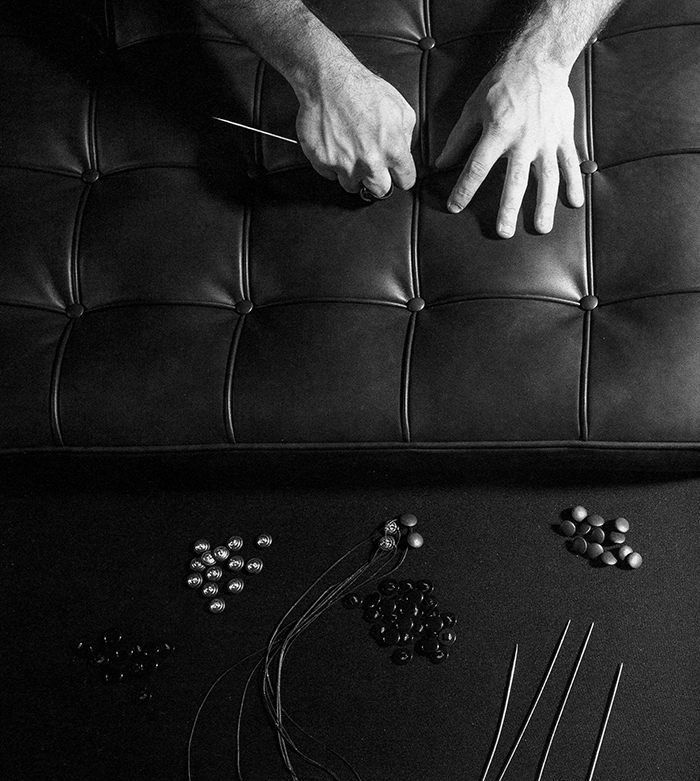
We might say that at the start, above all thanks to Florence, Knoll taught Americans the European language, and vice versa, playing the role of a major cultural bridge. Today, now that the world is more unified on a commercial level, how is this situation perceived?
Demetrio Apolloni: Globalization is very evident, and what succeeds most in this sense is the brand, rather than the product per se. In Japan Knoll is a brand known for its historic role, and the same can be said of Brazil and France. Even today, Knoll is definitely ‘international.’ We should remember that the company was founded in 1938, but it exploded in the postwar era during the reconstruction, when there was more demand than supply (today that relationship has practically been reversed). In that moment, Knoll had the intuition of being global, well before the globalization of markets.
How is the world of the office evolving, from your viewpoint, now that people seem to feel an increasing need for personalization of workspaces?
Andrew Cogan: The most important trend seems to be what we call the “residentialization” of the workplace. As the boundaries between the individual and the group and the home and the office break down, we see an increasing opportunity to furnish offices with products that can easily cross over and bridge both residential and commercial applications. We’ve recently worked with designers like David Rockwell who bring experience in more hospitality-oriented environments to the workplace.
Benjamin Pardo: We should also consider the fact that 40% of our sales are in the residential market, and this means that we have a different vision with respect to companies specializing only in the office sector. Today the major contractors of multinationals have understood that they have to be reliable but also very flexible, because of the world of work itself has become very flexible. They require guarantees of durability, so quality becomes the factor that makes the difference. And this is a concept that passes from big companies to small buyers: the quality and ability to function are what makes it possible for people to work, which is what Knoll is capable of concretely providing.
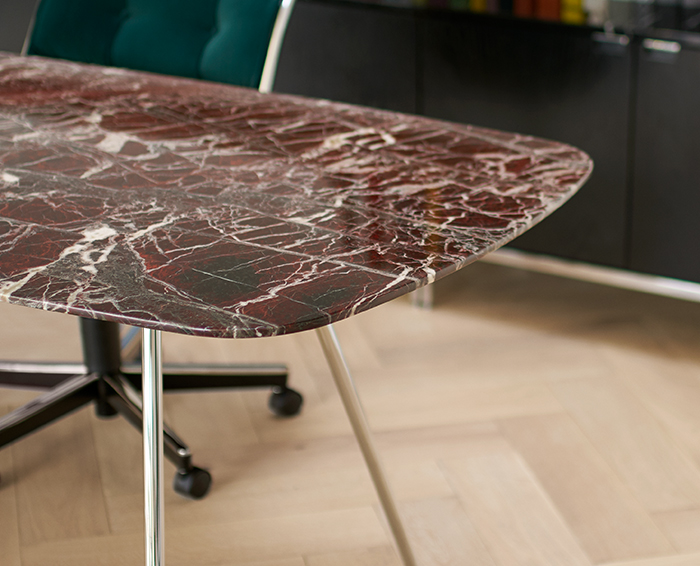
So what does ‘modern’ mean today, in your opinion?
Andrew Cogan: It has been over 50 years since there has been a “Knoll” at Knoll. The DNA that Hans and Florence left us with has been strong and enduring. There has always been this great mix of celebrating the remarkable “salesmanship” from Hans’ background with a commitment to the best in design from Florence, which has been at the core of our success. Our company is strong, which allows us to say “Knoll is modern always because modern always works.” These are the modern principles upon which we were founded: the commitment to enduring quality and design, a belief that design is, as Florence said, about understanding a client’s needs and solving a problem, with integrity and clarity. Such design will always be modern.
Demetrio Apolloni: In my view, modern means respect for the quality of the work of others. In no context – and certainly not in this company that produces the creations of giants of design – is it possible to not consider, to not respect the work of those who came before us. That is why I like to work on new projects with designers who clearly understand this sense of respect, without being inhibited by it, but with the happiness of becoming part of this great history of timele
